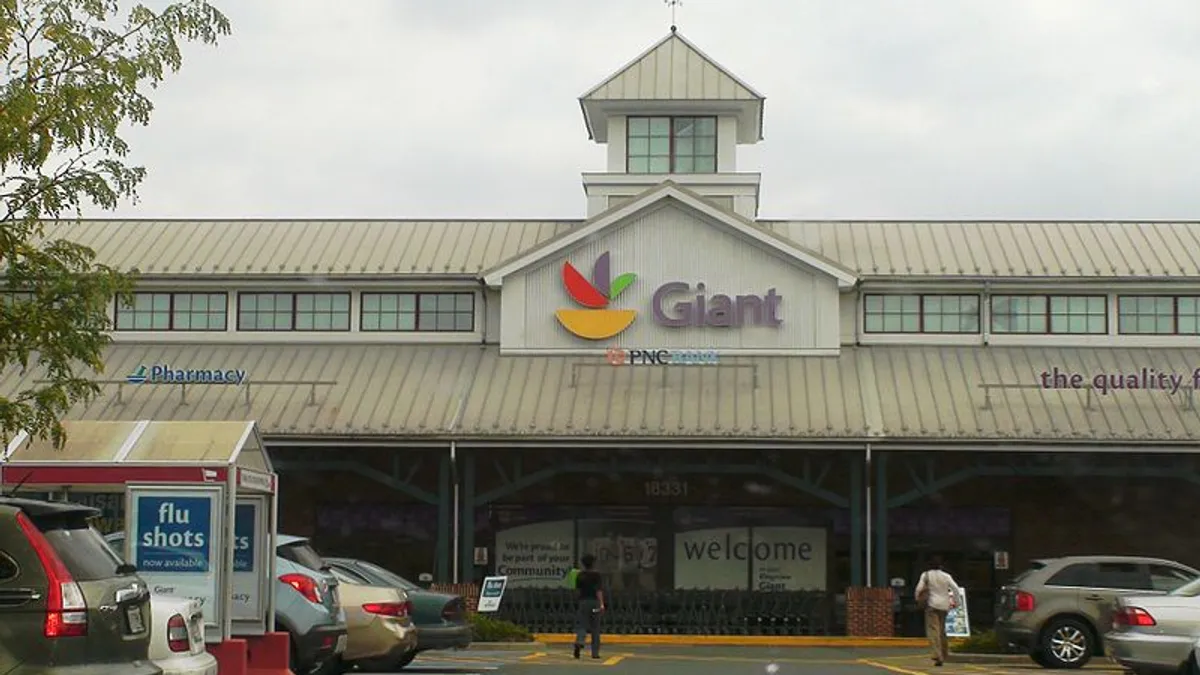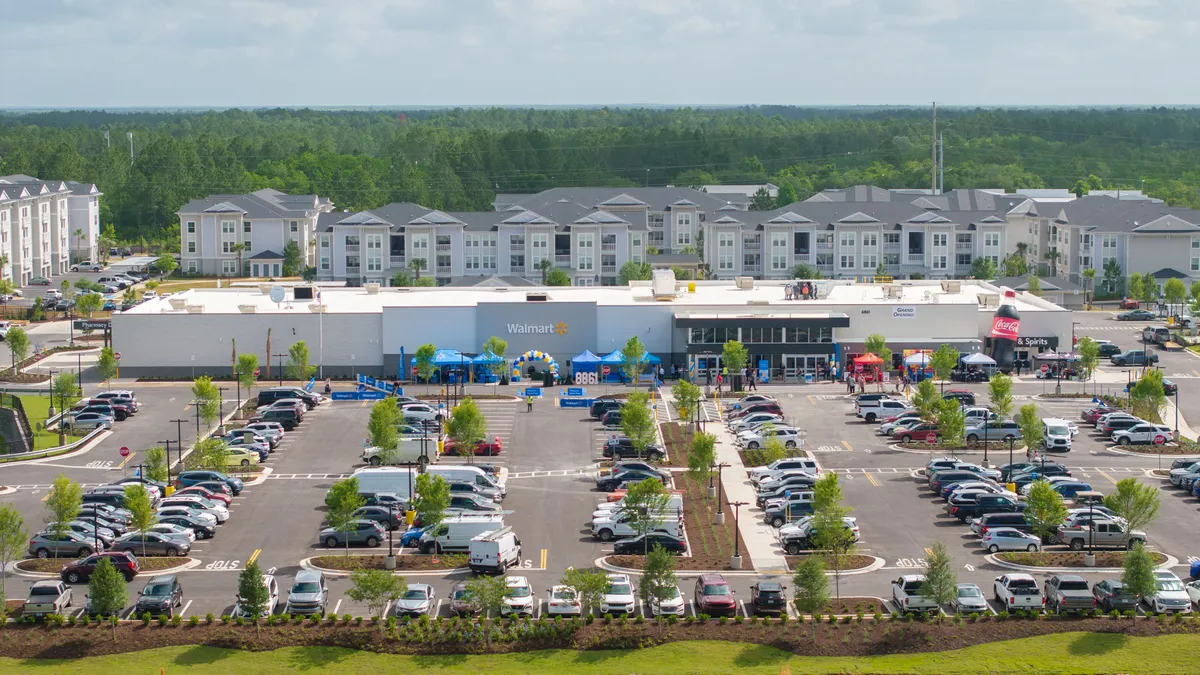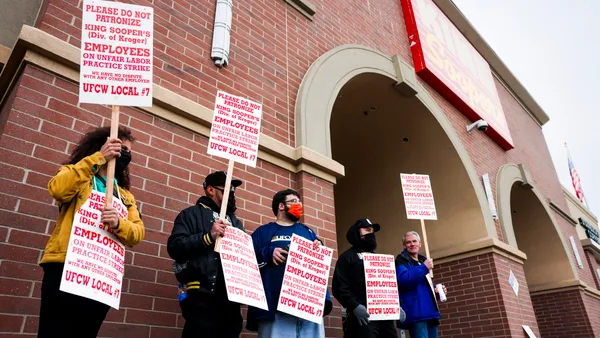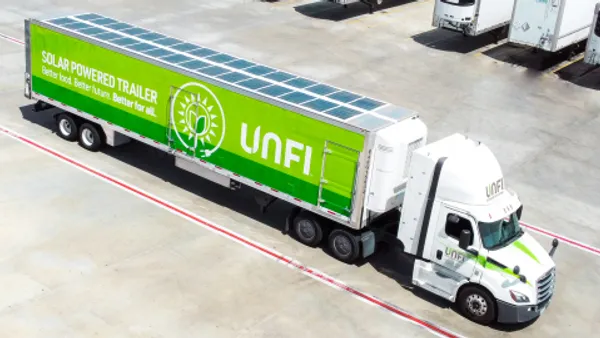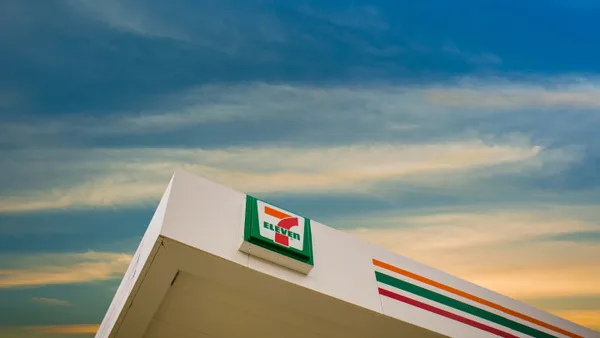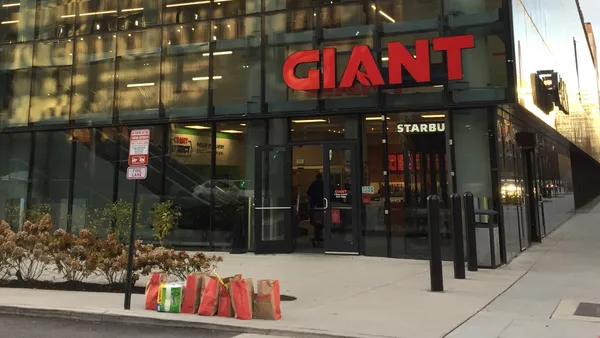Dive Brief:
- Ahold-Delhaize reported net sales of €15.5 billion ($18 billion), up 0.9% from the year-ago period which excluding the Easter holiday. In the U.S., net sales excluding Easter declined 0.3% while same-store sales declined 0.1%.
- The company noted that sales volumes were “challenged” at most of its U.S. retail banners, which provide two-thirds of the company’s sales. Stop & Shop was particularly challenged. “Volumes at Hannaford and Food Lion remained positive but were challenged at the other US brands,” CEO Frans Muller said in a release. “We expect the implementation of our brand-centric organization to result in an improvement in sales trends in the third quarter.”
- Online sales across the company were up 23.3%, while U.S. online sales were up 7.7%, driven by same-day delivery, third-party service provided by the likes of Instacart and the company’s Hannaford-to-Go program.
Dive Insight:
This was Ahold Delhaize’s first earnings report under the guidance of new CEO Frans Muller who took over for Dick Boer last month following his retirement. Muller had previously served as the company’s deputy CEO and played a key role in the integration process following the merger between Ahold and Delhaize in 2016.
While Ahold Delhaize is battling competitive headwinds on the East Coast by leveraging merger efficiencies, there are some significant shortcomings that need to be addressed.
Sales at most of its U.S. banners are down, reflecting the uphill battle traditional grocery retailers face against discounters, specialty stores and other alternative formats. Markets up and down the East Coast are seeing a flood of investment from existing players as well as new ones like Lidl and Sprouts Farmers Market. Ahold Delhaize singled out Stop & Shop as particularly challenged, but it also announced one way it’s looking to improve the banner’s performance: A new, fresh-focused format that will roll out to 20 stores by the end of this year.
The company no doubt hopes these store updates will have the same effect as those rolled out to Food Lion, which have boosted sales considerably. The retailer also said it plans to leverage its decentralized approach to improve sales. Last year, Ahold Delhaize named executives to lead each of its retail brands as part of its push to execute locally while drawing upon chain-wide resources.
Also worrying for Ahold Delhaize is its online performance in the U.S., which grew just 7.7% in this latest quarter. Peapod, the company’s biggest online asset and the largest pure-play grocer in the U.S., should be leading the charge for Ahold Delhaize in the burgeoning e-commerce market, but it has been challenged by a lack of promotional support — as the company admitted last year — as well as growing competition from the likes of Whole Foods, Kroger and Walmart.
In response, Peapod has added lower prices and innovations like voice ordering to go along with its renowned customer service. But it needs to do more. Earlier this year, Ahold Delhaize announced Peapod Digital Labs, which will oversee Peapod and the rest of the company’s online and digital efforts. CEO Muller, during an earnings presentation, called it “a shared e-commerce infrastructure for all our brands in the U.S.” that will “accelerate” innovation in online shopping, mobile programs and more.
Ahold Delhaize has a few other key initiatives it hopes will boost sales, including HelloFresh meal kits in 600 Giant and Stop & Shop stores, premium private labels and a new Hannaford rewards program. The company excels at testing new concepts and then sharing its best strategies chain-wide. It will need to continue doing so in order to stay competitive in the U.S.



